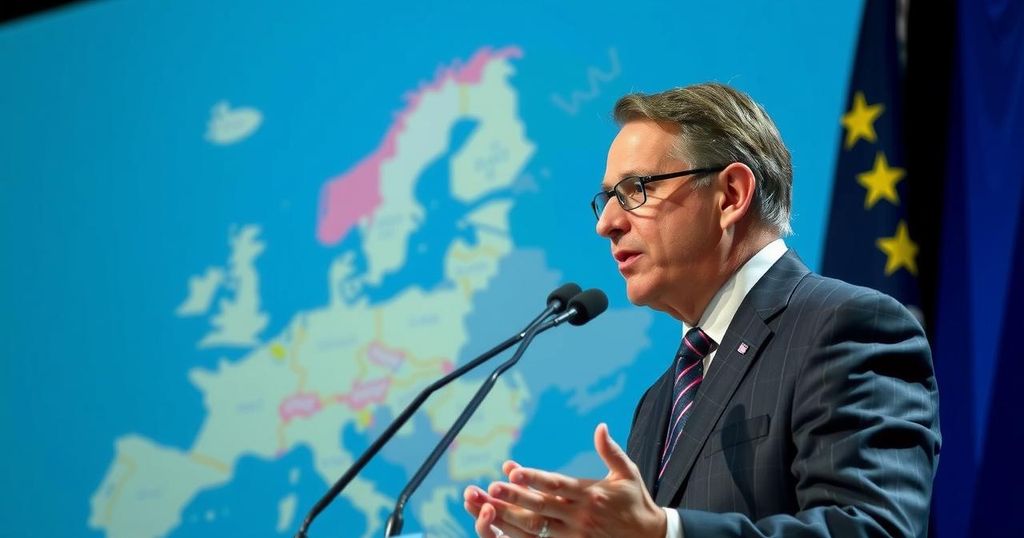Czech Prime Minister Petr Fiala has urged the European Union to reevaluate its climate goals amidst concerns over potential U.S. withdrawal from the Paris Agreement under President Trump’s administration. He emphasized the need for international collaboration and realistic targets, advocating for a review of past commitments antes to setting new ones. Fiala also highlighted the role of nuclear energy in achieving decarbonization.
Czech Prime Minister Petr Fiala has called upon the European Union to reconsider its climate objectives in light of the potential absence of global allies. With the re-election of Donald Trump as President of the United States, there are indications that his administration may withdraw from the Paris Climate Agreement, a move that could undermine collective global efforts to combat climate change. Fiala emphasized that Europe cannot achieve its climate goals independently and must seek to cultivate alliances with other nations, especially major players like the United States and China. During a press conference, Fiala acknowledged that while the United States has the right to determine its climate policies, the European Union must evaluate its strategies based on international collaboration. He remarked that not all states in the United States might conform to the federal government’s stance on climate goals, highlighting past instances where certain states have continued to progress towards meeting their environmental commitments. Fiala underscored the necessity for the EU to critically assess its climate strategies rather than hastily establishing new targets. He advocated for a thorough review of past commitments to gauge their effectiveness before further commitments are made. This perspective was reinforced in his address at the UN Climate Conference in Baku, where he expressed skepticism regarding the feasibility of ambitious climate targets without addressing existing failures in global commitments. Moreover, he advocated for the inclusion of nuclear energy as a viable solution for decarbonization and expressed readiness to assist nations in developing nuclear energy programs. Fiala’s remarks illustrate a practical approach to achieving climate objectives, prioritizing realistic targets over aspirational goals that might prove unattainable for many nations.
The discourse around climate change has gained heightened attention in recent years, particularly within the European Union, which has positioned itself as a leader in global climate initiatives. However, geopolitical dynamics significantly influence the EU’s ability to meet its climate goals. The United States, as a historical and key participant in global climate agreements, plays a critical role in shaping international climate policy. Czech Prime Minister Petr Fiala’s remarks come at a pivotal time when the U.S. may shift its stance under Trump’s administration, prompting European leaders to reconsider their strategies for climate action in the absence of united global support.
In conclusion, Prime Minister Fiala’s statements urge a reassessment of the European Union’s climate policies in light of potential setbacks from the United States’ withdrawal from international commitments. He advocates for a balanced approach that includes rigorous evaluation of past objectives and encourages international cooperation to achieve ambitious yet realistic climate targets. The emphasis on nuclear energy as part of the solution further highlights the need for pragmatic strategies in the global fight against climate change.
Original Source: www.euractiv.com






